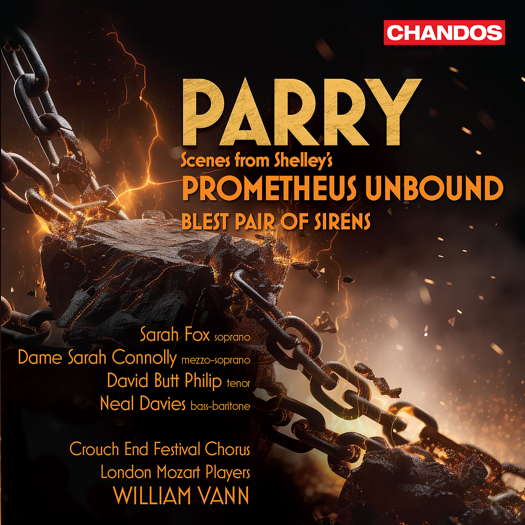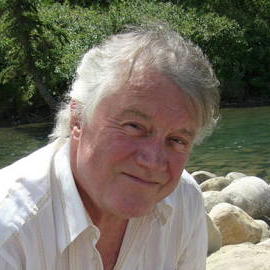 DISCUSSION: John Dante Prevedini leads a discussion about Composers, individuals or collective?, including contributions from David Arditti, Halida Dinova, Robert McCarney and Jane Stanley.
DISCUSSION: John Dante Prevedini leads a discussion about Composers, individuals or collective?, including contributions from David Arditti, Halida Dinova, Robert McCarney and Jane Stanley.

An Exceptional Recording
GERALD FENECH finds William Vann's new recording of music by Parry revelatory
'... highly dramatic performances seething with passionate endeavour and glorious grandeur.'
Sir Charles Hubert Parry (1848-1918) is best known today for Jerusalem, the song he composed in 1916 based on the verse preface of William Blake's epic poem Milton. What initially circulated at an inspirational time during World War I eventually became a public sensation. Indeed, Parry's musical adaptation rose in popularity as a church hymn and then as a 'quasi' second national anthem of the United Kingdom. Today, one can find performances of it virtually anywhere and, according to a BBC podcast, Jerusalem is held in the hearts and memories of people from different backgrounds and cultures.
For Parry, setting poetry of the British Romantics to his own original music appeared to be a calling. Some four decades earlier during his years of study at Oxford University, he was steeped in the writings of Coleridge, Shelley and Keats, and it was this kind of literature that inspired Parry to complete a musical adaptation of Shelley's Prometheus Unbound, a fitting poetic choice for an orchestral choral 'cantata' that spoke to Parry's radical political commitments at the time.
Listen — Parry: Chorus of Furies (Scenes from Shelley's 'Prometheus Unbound')
(CHSA 5317 track 6, 1:53-2:47) ℗ 2023 Chandos Records Ltd :
As Parry's biographer, Jeremy Dibble, has noted:
In the summer of 1879, the composer had returned to the re-reading of Shelley, whose poetry he had read avidly when a student at Oxford, and discovered that the radical ideology of 'Prometheus Unbound' chimed with his present political, aesthetic and musical state of mind.
Indeed, Parry's piece was a progressive composition that marked the start of a renaissance in English musical history. Parry's adaptation is regarded as extraordinarily avant-garde and experimental, especially given its many Wagnerian influences.
Listen — Parry: Ye congregated pow'rs of heav'n (Scenes from Shelley's 'Prometheus Unbound')
(CHSA 5317 track 12, 1:12-2:08) ℗ 2023 Chandos Records Ltd :
According to Dibble:
Parry attempted to emulate the new style of seamless Wagnerian declamation where the voice, as a counter-point, interwove with the polyphony of the orchestra in a larger symphonic structure ultimately conceived as an instrumental canvas. It is bold music, rebellious in tone, harmony and demeanour, with colourful orchestration and a rhetoric never before heard in an English composer.
The premiere took place on 7 September 1880 at the Three Choirs Festival in Gloucester Cathedral, but the performance drew a mixed reception, despite its consequential place in history. Prometheus only received two further performances and then the work fell into almost total neglect. Thankfully this exceptional recording from Chandos should put the record straight.
Listen — Parry: We come from the mind (Scenes from Shelley's 'Prometheus Unbound')
(CHSA 5317 track 17, 0:17-0:56) ℗ 2023 Chandos Records Ltd :
Blest pair of Sirens was commissioned to celebrate Queen Victoria's Jubilee in 1887. It was dedicated to the members of the Bach Choir and their conductor Sir Charles Villiers Stanford, who gave the premiere on 17 May 1887 in St James' Hall. According to Parry, the work was received with immense enthusiasm and the work remains popular to this day.
The text is taken from John Milton's ode 'At a solemn music', in which the poet describes the rapture experienced on listening to sacred music. Parry's setting is constructed in a form reminiscent of a Baroque concerto, with 'orchestral ritornellos' framing contrasted vocal sections. The sense of continuity provided by this form was perhaps inspired by Milton's first sentence, which runs to no fewer than twenty-four lines. The opening of Blest pair of sirens also refers, consciously or otherwise, to the first bars of Wagner's Die Meistersinger ...
However, Parry's elegant part writing, above all in the eight-part sections, suggests close study of Brahms' Fest-und Gedenskpruche, Op 109.
This programme, Parry: Prometheus Unbound; Blest Pair of Sirens is nothing short of revelatory and should dispel all doubts whether Parry was such a great figure in the English Musical Renaissance of the late nineteenth and early twentieth centuries. No wonder Stanford once went on to maintain that Parry was the greatest English composer since Henry Purcell (1659-1695).
Listen — Parry: Blest pair of sirens
(CHSA 5317 track 19, 1:21-2:09) ℗ 2023 Chandos Records Ltd :
With soloists Sarah Fox, Sarah Connolly, David Butt Philip and Neal Davies, conductor William Vann, an avid advocate of Parry's music, has the complete measure of these works, and his committed conducting of the combined forces of the Crouch End Festival Chorus and London Mozart Players draws highly dramatic performances seething with passionate endeavour and glorious grandeur. A disc for the ages, in superb sound and presentation.
Copyright © 11 September 2023
Gerald Fenech,
Gzira, Malta




